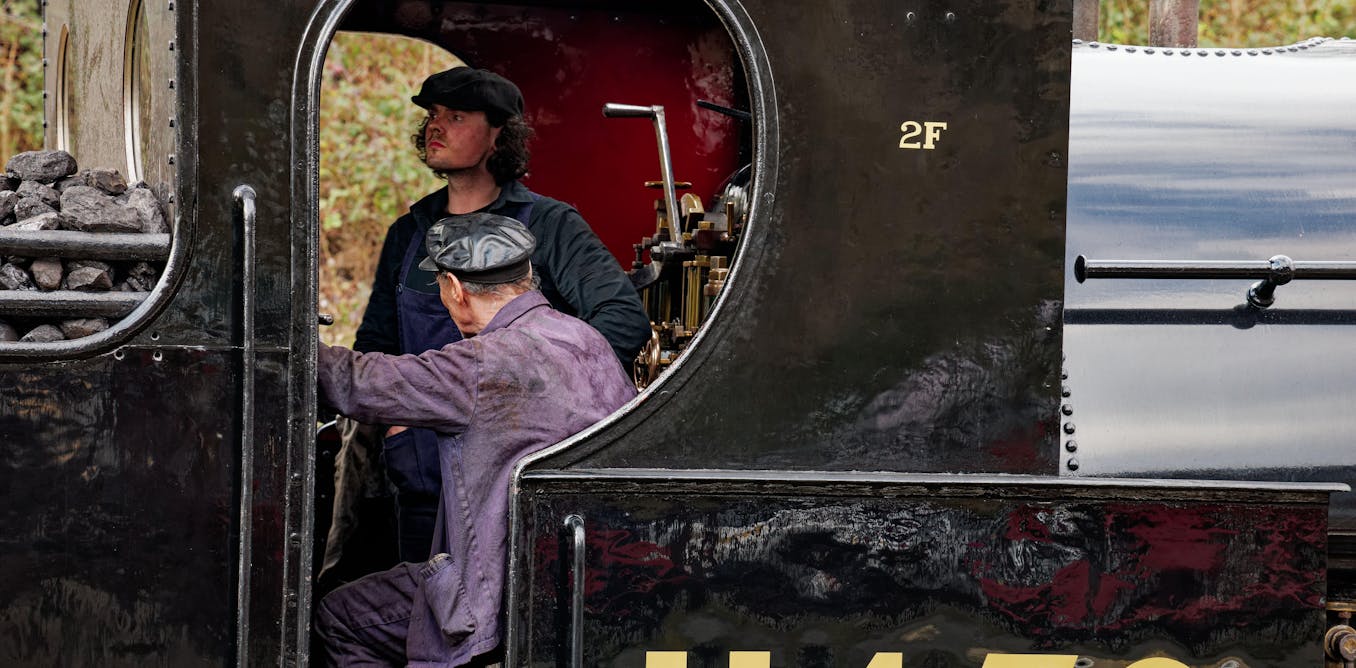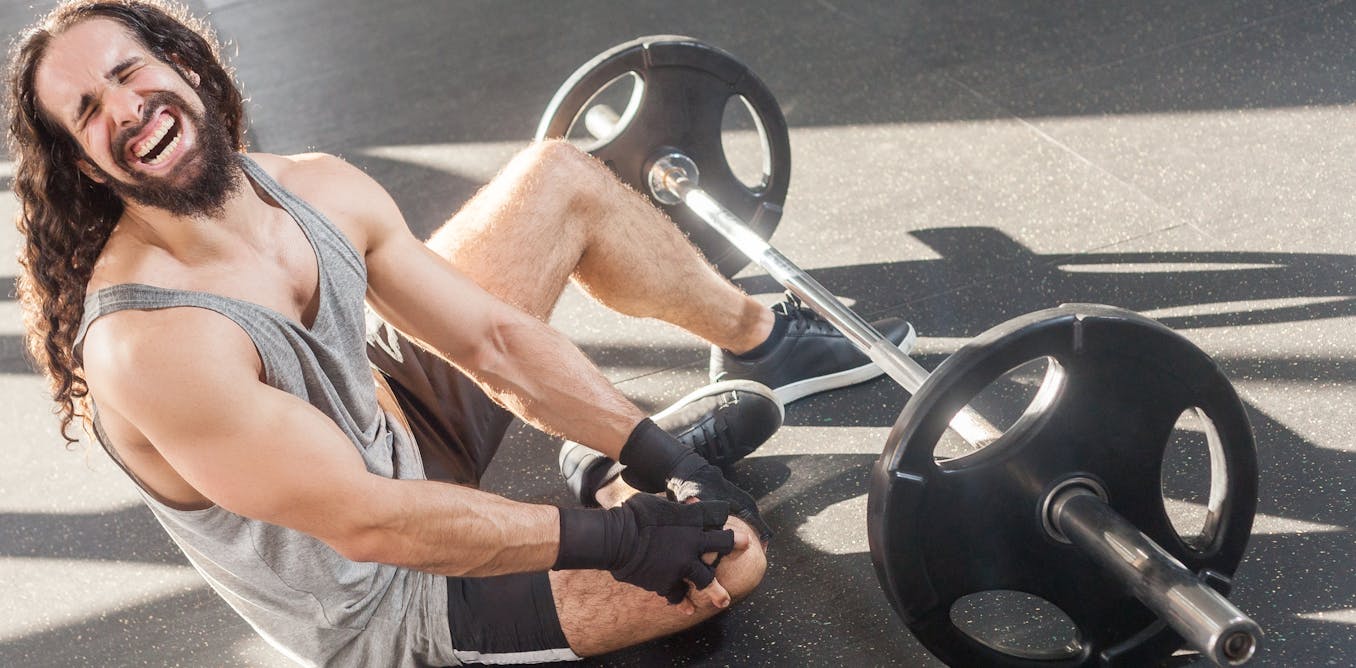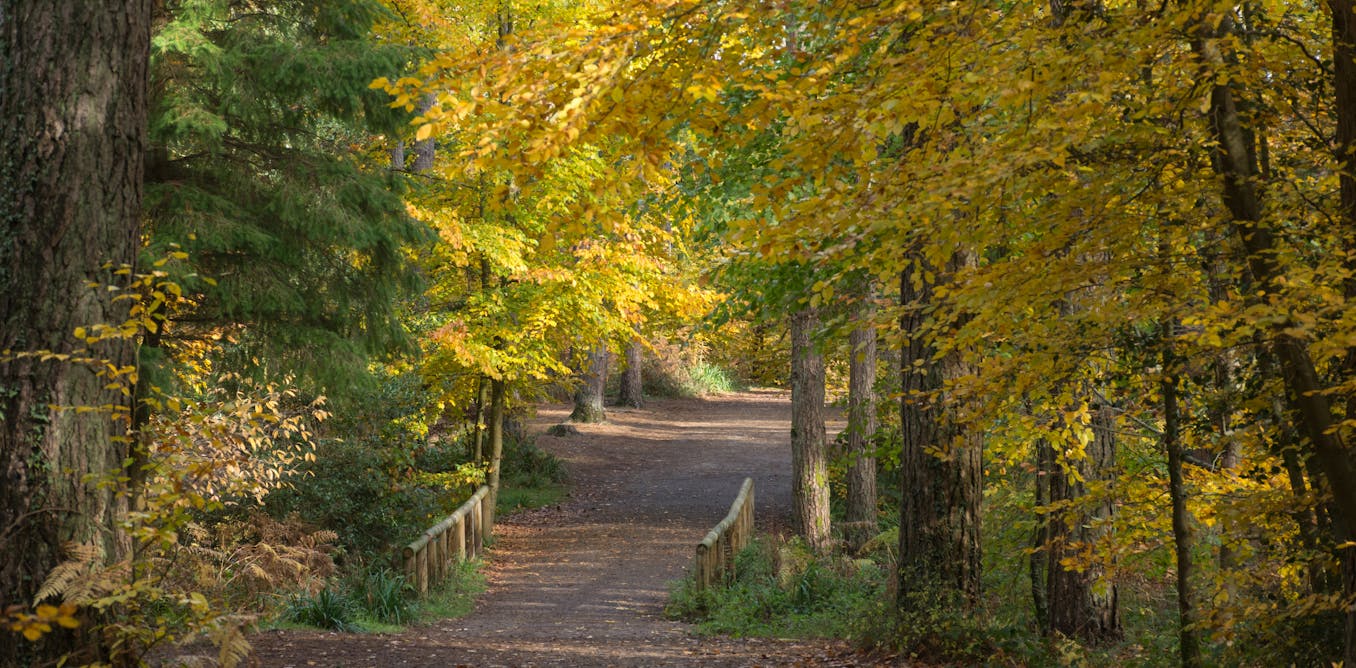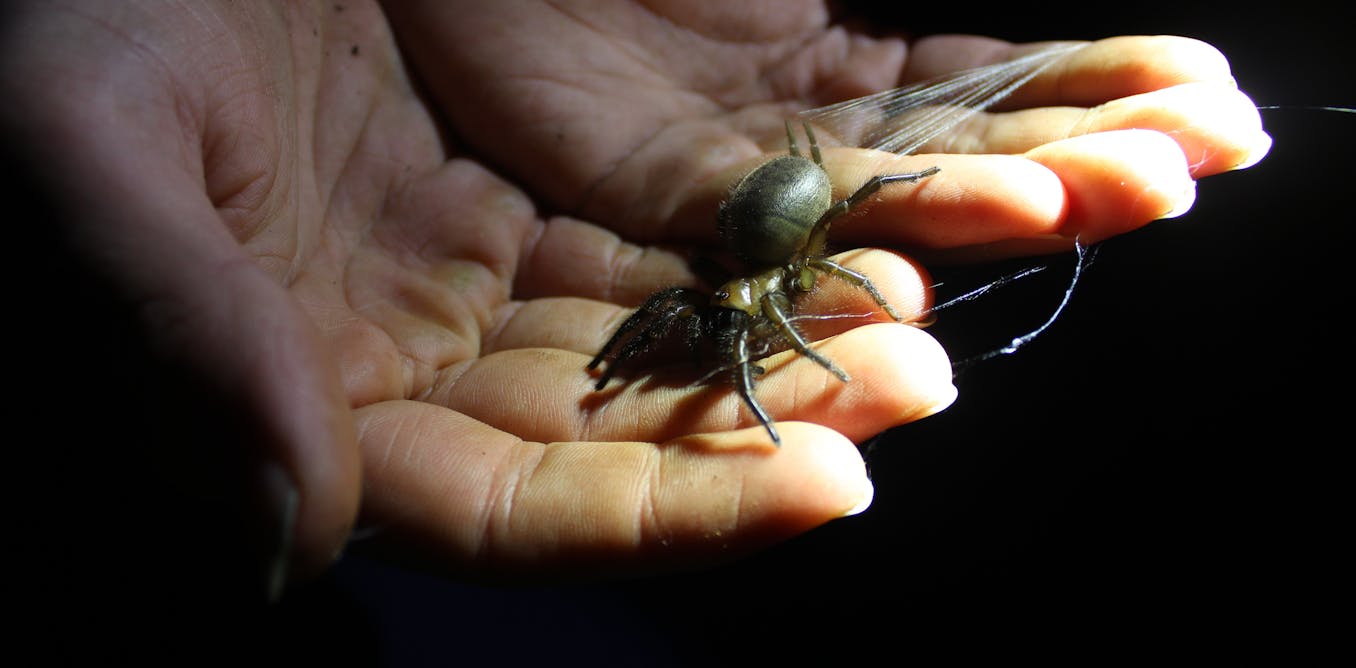With September comes spring: flowering trees, warmer weather, longer days. But just as it felt like spring had sprung, a new cold front came over much of south east Australia.
No matter if you’re looking for something to while away the last of the chilly days, or looking for something to watch to escape the dreaded hay fever outside, our experts this month have you covered. There are old classics celebrating 50 years since they hit the big screen, now available on the small screen at home. There is a new ABC drama; a documentary about The Biggest Loser; and Untamed, blending western tropes with the detective thriller.
The Family Next Door
ABC iView
At first glance, the ABC’s new flagship drama The Family Next Door’s looks like a soapy cross between Neighbours and Home and Away. But the restrained performances, stellar cast and twisty tale elevates this suburban mystery.
Directed by Emma Freeman, the six-part series is set in the fictional seaside town of Osprey Point on Victoria’s Great Ocean Road. Isabelle (Teresa Palmer) rents a house on Pleasant Court and is ostensibly in town to write an article about “the new Byron Bay”.
But we quickly learn she has been suspended from her job at Child Protective Services, and has actually moved in to start obsessively investigating the four neighbouring families. With each episode, she becomes more reckless in her search for someone or something, and less willing (or able) to face her own increasingly evident demons. Teresa Palmer brings magnetism and a disconcerting sense of foreboding to the role.
For me, the greatest appeal of the show is its focus on the women in each of the families on the street. Through them, the series explores universal challenges of motherhood, marriage and friendship, as well as the complexities of managing identity and responsibility across these roles.
Each episode centres on a different matriarch, so the ensemble cast gets time to shine as Isabelle chips away at their relationships, stories and secrets.
The Family Next Door is a funny and authentic portrayal of suburban life. It’s relatable, in an understated way, and will quickly have you hooked.
– Alexa Scarlata
Read more:
ABC’s new suburban mystery The Family Next Door is understated and addictive
Untamed
Netflix
Untamed blends western tropes with the detective thriller, offering a moody six-episode mystery set against the eerie beauty of Yosemite National Park. Eric Bana plays Kyle Turner, a National Parks Service agent introduced with the quip, “here comes Gary Cooper”. Like Cooper, Kyle embodies quiet integrity, a strong silent type whose strength lies in restraint rather than heroics.
His only ally is Chief Ranger Paul Souter (Sam Neill), while others disparage him. This leads to rookie ranger Naya Vasquez (Lily Santiago) being assigned to work with him. He tries to shake her off, but her persistence pays off.
Ultimately, Kyle mentors her and this awakens one of the show’s most affecting threads, as she comes to share his profound admiration for the environment. If he rides out, as western heroes tend to, Yosemite will be safe with her.
The central mystery begins when climbers on El Capitan are struck by a falling body. Kyle abseils into the scene, losing crucial evidence in the process, and the question emerges: did she jump, or is it murder?
At the same time, Kyle and his ex-wife Jill (Rosemarie DeWitt) have suffered the devastating loss of their only son, Caleb (Ezra Wilson). This subplot explores the bond two people develop through their child – one they can’t share with others. And when a child dies, only they know each other’s pain.
Though Untamed never quite reaches the strangeness of shows like Top of the Lake or Twin Peaks, it shares their cinematic ambition and atmospheric unease. It also boasts an outstanding cast.
– Lisa French
The Hunting Wives
Stan
The Hunting Wives is a liberal satire of Southern American Whiteness that brings together murder mystery, sexy affairs, and small town politics.
In a glossy, delicious package, this over-the-top melodrama will make you want to press “next episode” immediately. Not for those seeking realism or seriousness in their TV programming, the series is silly, absurd and very juicy.
It follows Sophie (Brittany Snow), an East Coast “liberal elite” who moves to Texas with her husband, where she is taken under the wing of glamorous housewife and power broker Margot (Malin Ackerman).
Sophie becomes ensconced in a world where sexual exploits, political power grabs and violence are hidden under a veneer of Evangelical Christian rhetoric and glossy white femininity. Her new life in Texas proves her politics, morals and sexuality are not as fixed as she thought.
Sophie’s arrival unsettles the fragile friendship dynamics of the local town, and plenty of twists and turns follow. If you like campy melodramas such as Scandal, Nashville, Empire, Dynasty or The Real Housewives, you’ll enjoy the mayhem and madness of The Hunting Wives.
– Jessica Ford
Platonic, season two
We’ve seen good examples on TV of men and women enjoying each other’s company without any hanky panky. Some are professional relationships based on loyalty and respect: think Mulder and Scully on the X-Files in the early seasons, or Benson and Tutuola on Law and Order: SVU.
Other times, men and women from opposite sides of the sexuality spectrum are paired in a lighter setting, such as Will and Grace, or Brooklyn 99’s Jake and Rosa.
Platonic goes a step further, exploring companionship between a straight woman and man within the rom-com genre. Sylvia (Rose Byrne) plays an anxious wife and mum of three trying to re-enter the work force, while Will (Seth Rogan) is a laidback, unlucky-in-love brewer in the aftermath of divorce. The pair met in college but went their separate ways before deciding to reconnect in Los Angeles during their midlife meltdowns.
Co-creators Francesa Delbanco and Nicholas Stoller have produced a unique offering that juxtaposes mundane life situations against outrageous misadventures. Byrne and Rogan enjoy a great onscreen camaraderie with some memorable ad-libbed dialogue.
Season two is a little slow off the mark and relocates a lot of the action to San Diego, where Sylvia is organising Will’s wedding to his boss-turned-fiancée, Jenna (Rachel Rosenbloom). By episode four, however, the madness gets real.
Platonic always throws a curve ball you don’t quite see coming, and this season continues the tradition with moments that will make you scream as well as laugh.
– Phoebe Hart
The Thursday Murder Club
Netflix
The long-awaited film adaptation of Richard Osman’s best-selling book, The Thursday Murder Club, has finally dropped on Netflix.
Celia Imrie, Helen Mirren, Pierce Brosnan and Ben Kinsley star as Joyce, Elizabeth, Ron and Ibrahim – four residents at a retirement village who take an interest in unsolved crimes.
This extracurricular activity soon sees them in the middle of their very own investigation as a murder occurs right on their doorstep.
As with all book adaptations, there are some changes in order for the plot to fit into a neat two hours. Some of the investigation is simplified in order to focus on the chemistry of the four amateur sleuths.
Chris Columbus’ direction makes the film feel cohesive, familiar and easily rewatchable by drawing on all of the charm of the British cozy murder mystery, such as Midsomer Murders, Vera, or the ITV adaptations of Agatha Christie. This appeal is easily aided by the source text; Osman’s writing wonderfully captures the likeability of the four lead characters.
The stellar supporting cast is rounded out with David Tennant, Naomi Ackie, Daniel Mays, Henry Lloyd-Hughs, Ruth Sheen, Richard E. Grant and more.
I can’t wait to reread the book now.
– Stuart Richards
The Rocky Horror Picture Show
Apple TV and Disney+
Tim Curry’s powerhouse performance as Frank-N-Furter is central to the success of The Rocky Horror Picture Show, now turning 50. Yet, his truly astounding work often overshadows the film’s many other dynamic performances.
Rocky Horror’s supporting characters and chorus feature alluring oddballs who irreverently challenge norms of physical desirability. Their “imperfect” bodies are not only a tribute to diversity: they radically upturn genre expectations of stage and screen musicals, and discredit broader cultural ideals of beauty.
Rocky Horror’s anti-Broadway aesthetic is apparent as soon as the “butler” Riff Raff (Richard O’Brien) opens the castle door. This wiry framed hunchback with tangled hair is a far cry from the athletic ideal of the Broadway body.
Inside the mansion, the alien “Transylvanians” are a broad assortment of unconventional body types squeezed into colourful costumes. Lanky actor Stephen Calcutt stands at 198 centimetres tall, and Sadie Corré at just over 120cm. Hugh Cecil, then 62, has alopecia, which exaggerates his stark monocled whiteness. Fran Fullenwider, with her wild, teased-out coiffure and curvy frame, is clad in skin-tight pants.
Overtly parodying Frankenstein’s creation of a grotesque monster, Frank-N-Furter scientifically “births” the perfectly chiselled Rocky (Peter Hinwood), a “perfect specimen of manhood”: muscular, a sharp jawline, blonde hair and a tan. But Rocky does not have the charismatic body positivity of Eddie (Meat Loaf): loud, sexy and very nearly loved.
Half a century from its release, Rocky Horror remains a place where people of all shapes, sizes, ages, abilities, and colours can dance and sing and celebrate without constraints.
– Craig Martin and Joanna McIntyre
Read more:
At 50, The Rocky Horror Picture Show is ‘imperfectly’ good (and queer) as ever
Picnic at Hanging Rock
Apple TV
Peter Weir’s Picnic at Hanging Rock, released 50 years ago, is remembered for its eerie atmosphere and mysterious story. But beneath its haunting beauty, the film challenges the idea of colonial control over the Australian landscape.
Picnic at Hanging Rock tells the story of a group of private schoolgirls and their teachers who visit the nearby Hanging Rock on Valentine’s Day in 1900. During the excursion, three students and one teacher mysteriously disappear.
No clear explanation is ever given, which unsettles both the characters and the audience. The mystery triggers hysteria, scandal and a slow collapse of order at Appleyard College.
The film became a landmark of the Australian New Wave, and can be seen as a powerful story about colonial fear and uncertainty. The unexplained disappearance of the schoolgirls plays off the idea that European thinking and logic can’t fully understand or master the Australian landscape.
When watched through this lens the story reveals just how fragile colonialism is: the landscape itself remembers the past and actively resists the stories colonisers have tried to tell about it.
Picnic at Hanging Rock remains powerful today, especially in light of ongoing discussions about Indigenous sovereignty and reconciliation in Australia. The film’s mystery is never solved, forcing viewers to sit with the discomfort of what’s left unsaid.
– Jo Coghlan
Read more:
Rewatching Picnic at Hanging Rock at 50: an unsettling portrayal of place, silence and disappearance
Fit for TV: The Reality of The Biggest Loser
Netflix
The Biggest Loser was one of the most successful reality shows ever created, first aired in the United States in 2004, and quickly franchised around the world.
The US series ran for 17 seasons (Australia’s ran for 11 seasons, from 2006 to 2017). The show was a juggernaut, offering each contestant the opportunity to change not just their body, but their life.
However, as the new documentary Fit for TV reveals, this narrative quickly devolved. Increasingly, the story of The Biggest Loser was one of sadness and suffering, with extreme weight loss promised to be the panacea.
No one interviewed in the documentary has a positive story to tell. Fit for TV takes The Biggest Loser to task for the so-called “villain edit” of some of the contestants for the ostensible purpose of encouraging self-improvement. We also see the oppositions and tensions between contestants, and between contestants and trainers.
However, the documentary’s most powerful indictment comes in the after effects the show inflicted on participants. Danny Cahill, winner of season eight, says “we were gaining weight while we were even working out. And we knew something was up.”
In 2016, a study found all but one of the contestants had gained weight after the show, with some reporting being heavier than when they had started. “You love to watch us, but you sure don’t want to know what happened to us after the fact,” another former contestant observes.
Fit for TV is a compelling reflection on a shameful moment in recent cultural history.
– Jessica Gildersleeve

The post “what to watch in September” by Alexa Scarlata, Lecturer, Digital Communication, RMIT University was published on 08/31/2025 by theconversation.com




































Leave a Reply